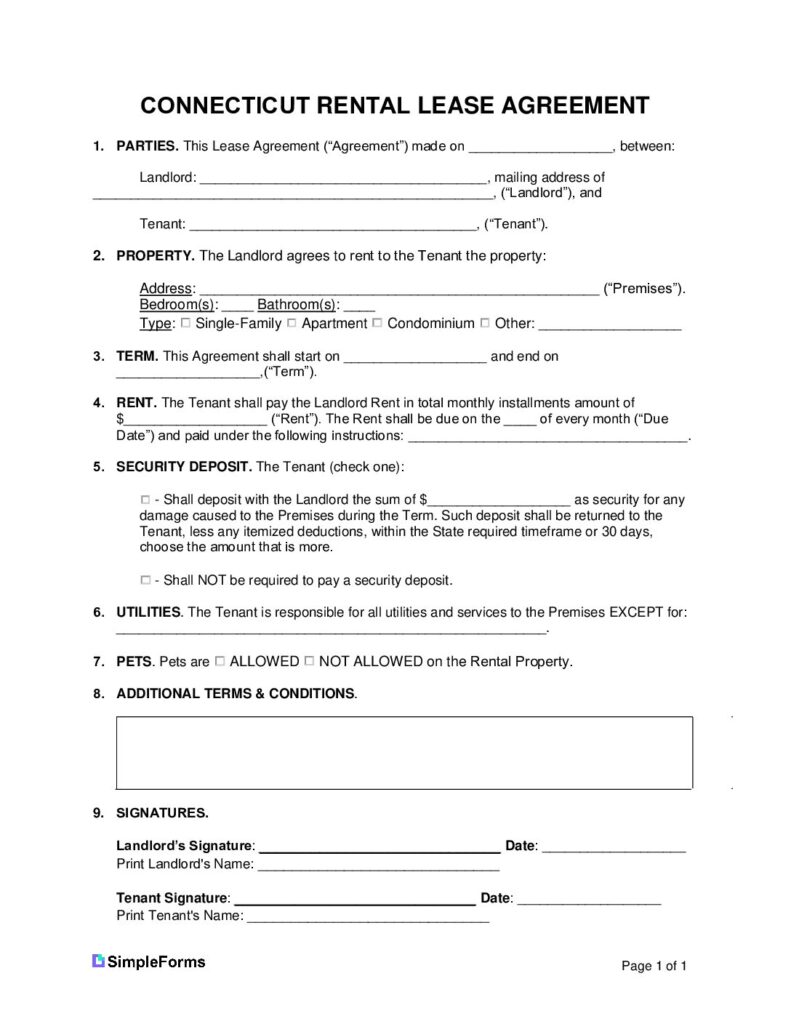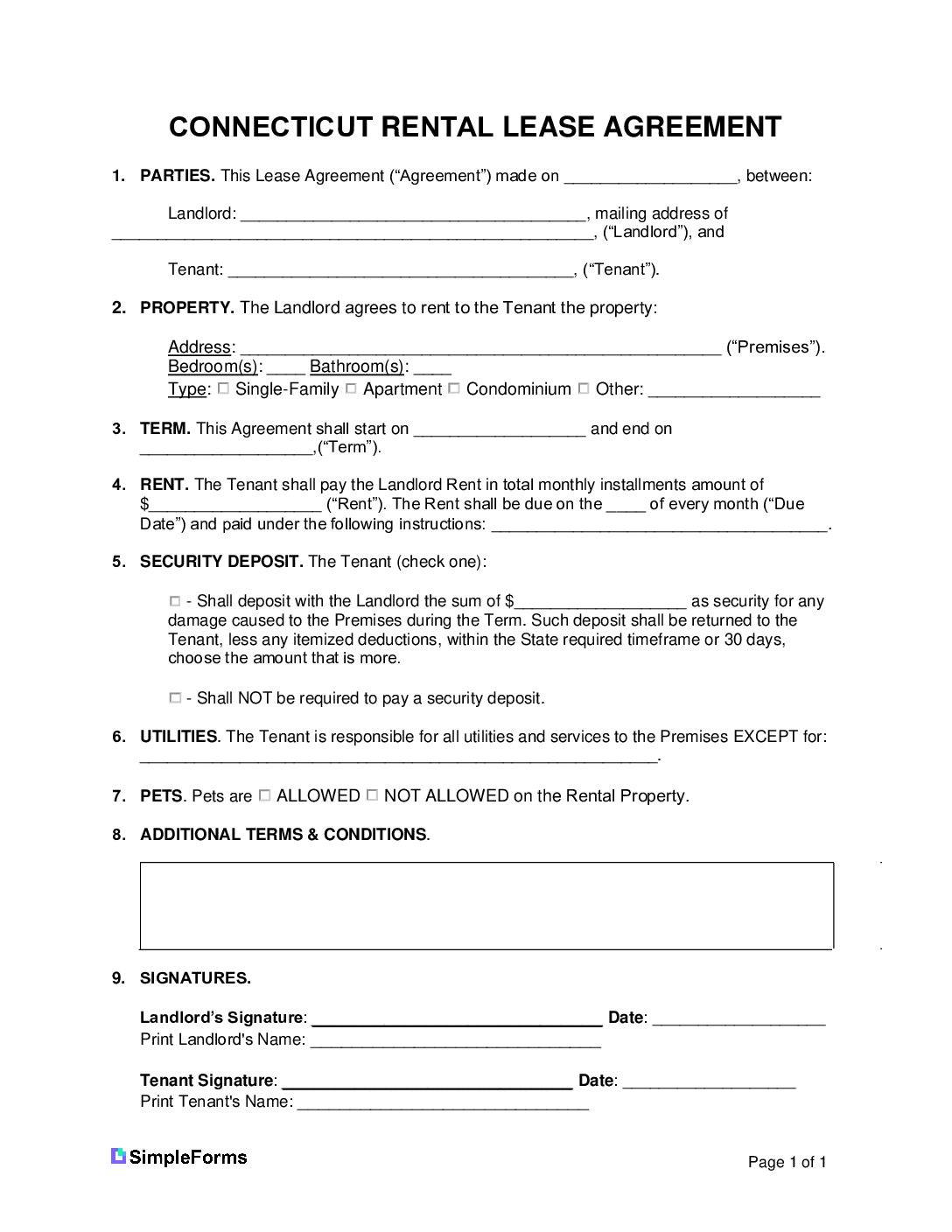Most Recent US Home Facts
- Population (2023): 334,914,895
- Median Households (2022): 125,736,353
- Median Household Income (2022): $75,149
- Owner-occupied Households (2022): 64.8%
Source: U.S. Census Bureau
Disclosures (4)
- Landlord’s Identity – The landlord must identify themselves in the lease and include the address where the tenant can send legal notices.
- Lead-Based Paint Disclosure – In accordance with federal law, it is mandatory to provide a lead-based paint disclosure for all residential units constructed prior to 1978. Please ensure that this requirement is met to ensure compliance with Connecticut law.
- Sprinkler Disclosure – The lease agreement must contain a disclosure statement that specifies whether a sprinkler system has been installed on the premises, along with the date of the most recent inspection.
- Condominium Interest Community Disclosure – When vending a property situated in a communal-interest locality, it is mandatory to affix a Condominium Interest Community Disclosure
Security Deposit
- Maximum Amount – For Tenants under the age of 62, the maximum amount Landlords can charge is two months’ rent. Tenants 62 and older, Landlords can request up to one months’ rent.
- Returning to Tenant – 21 days of the lease end date unless the Landlord receives Tenants new mailing address then 15 days from that date.
Source: § 47a-21d(2)
Landlord Access
General Access – The Landlord must give Tenant(s) “reasonable notice” before entering the rental property unless it’s an emergency or by court order.
Source: § 47a-16
Paying Rent
Grace Period
Connecticut Real Estate Commission
For any other questions you may have, refer to the
Connecticut Real Estate Commission website.
Frequently Asked Questions
Where to find Vacation and Cabin Rentals?
Connecticut rentals can be found on Craigslist.com, zillow.com, Vrbo.com, AirBnb.com, Trulia.com and apartments.com.
What is Connecticut’s minimum wage?
As of January 1st, 2024, the minimum wage in Connecticut is $15.69.
Is weed legalized in Connecticut?
Yes, residents over the age of 21 can consume and possess marijuana.
Where to visit in Connecticut?
The most popular destinations in Connecticut are the Mystic Seaport, Yale University and its museums, Mark Twain House & Museum, Mystic Aquarium, and Gillette Castle State Park.
How to file a complain against a landlord in Connecticut?
Contact the Connecticut Department of Housing.
How to become a real estate agent in Connecticut?
Complete the sales agent classes, pass the state exam and any other requirements by Connecticut Department of Consumer Protection.
How much is home owners insurance?
The price can vary depending on location and home value. Check with local insurance companies and compare prices.
What does home owners insurance cover?
Damage to home and natural disasters.
Is rental income taxable in Connecticut?
Yes.
Is Connecticut landlord friendly?
Yes. Connecticut is both landlord and tenant friendly.
How much is rent in Connecticut?
Depending on the rental the prices can vary. Check local listings for current prices.

